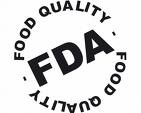
www.inoxpa.com
As I’m reading some material on the federal National Nanotechnology Initiative (NNI) web site, I am struck by the breathtakingly broad scope of nanotechnology and its incorporation into useful products that reach into every facet of life. The NNI coordinates funding for nanotechnology R & D across 25 federal departments and agencies. NNI promotes the development and use of the technologies through NNCO (the National Nanotechnology Coordination Office) and the NSET Subcommittee (the Nanoscale Science, Engineering, and Technology Subcommittee), and of course those 25 federal departments and agencies. NNI also is involved in coordinating research strategies for studying the effects of nanotechnology on the environment and on the public’s health and safety. But so far it has not taken any specific position on regulation.
To demonstrate what regulation could look like, it’s useful to think about the many departments, agencies, and federal acts or regulatory measures that could come within the jurisdictional scope of nanotechnology and nanosubstances. To name just a few:
Department of Agriculture
Department of Labor
Department of Homeland Security
Department of the Interior
Health and Human Services
Department of Energy
Etc.
FDA (Food and Drug Administration)
FDCA (Food, Drug, and Cosmetic Act)
EPA (Environmental Protection Agency)
CWA (Clean Water Act)
CAA (Clean Air Act)
OSHA (Occupational Safety and Health Administration)
PEL (Permissible Exposure Limits)
NIOSH (National Institute of Occupational Safety and Health)
NSF (National Science Foundation)
FIFRA (Federal Insecticide, Fungicide, and Rodenticide Act)
NEPA (National Environmental Protection Act)
TSCA (Toxic Substances Control Act)
CPSC (Consumer Product Safety Commission)
FHSA (Federal Hazardous Substances Act)
SDWA (Safe Drinking Water Act)
To name only a few . . .
The point of this alphabet soup exercise is that nanotechnology impacts so many facets of society that developing an approach to regulation will be difficult at best. Leaving regulation to individual agencies will by its nature be narrow, thereby missing many issues. But broad regulation – such as a new department along the lines of Homeland Security – may lack coherence and control. As nanoproducts proliferate and nanotechnology becomes more pervasive, regulation will come, and it must strike a balance between these two poles.

Yes – took a look at the material on the federal National Nanotechnology Initiative (NNI) web site, as well. Wow, it’s not only the depth of appications that stike me it;s also the speed at which this technology is taking hold. I am hopeful that we don’t impact these tends with over regualtion, we need the inovation to stimulate the mess in the global economy.